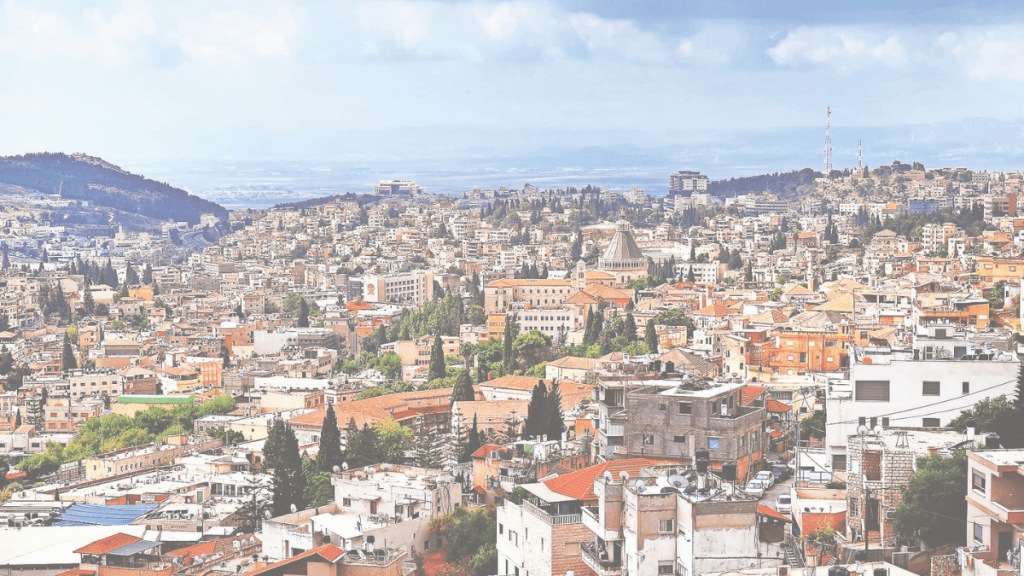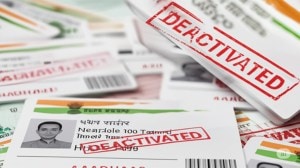Somewhere in the middle of Do Not Ask The River Her Name, Malayalam writer Sheela Tomy’s new novel, is the story of a woman running a shop in the middle of a desert in Saudi Arabia. Asked if she isn’t afraid, the woman replies, “Are you afraid of living in your own home?” In the times of terrifying greed for territories, the novel explores the perilous uncertainty around the place called home. Tomy, who handled the greed of humans in the fast disintegrating environs of Wayanad, Kerala, in her debut novel, Valli, sets the tinderbox of the world in the Middle East region at the centre of Do Not Ask The River Her Name. If the settlers in Wayanad who arrived in the ’60s from the erstwhile Travancore were her protagonists in Valli, in her new novel they are from everywhere. Because it is Israel and Palestine, the promised land and the homeland of the homeless.
The central character of the novel is Ruth Albert, a nurse from Kerala caring for a cancer patient in Nazareth, Israel. David Menahem, a former professor at The Hebrew University of Jerusalem, has helped Ruth get a visa so that she could become his caregiver. While David is a displaced Jew from Baghdad, Iraq, Ruth’s is a journey not very different. Forced to seek work in the Gulf to find money for the treatment of her husband, who was bed-ridden after a road accident, Ruth is thrown into a whirlpool of hazards that eventually lands her in Israel. As she negotiates her new workplace in Nazareth, a cornucopia of emotions inhabited by Esther, a Zionist-supporting wife of David, and Asher, the Palestine-backer-son, Ruth becomes a vlogger to channel the conflict.
The novel begins in the summer of 2021 near the Temple Mount in Jerusalem where Asher, the son of professor David, is looking for his Palestinian friend, Sahal Al Fadi. Asher is trying to help his friend find a passage to Malaysia to study in a university there. Like the region, Sahal comes with a heavy baggage of history. He lost both parents in an Israeli raid on their West Bank town when he was eight years old. The attack brought down his school building as Sahal and his two siblings sat down to study in their classes. Now part of HOPE, an NGO in Palestine helping young people survive through education, Sahal is in the eye of the storm raging in his homeland.
While the novel juxtaposes Ruth’s eternal displacement with the predicament of her employers in Israel, it weaves a fabric of a rare element of support that some people are still willing to provide to causes most of the world finds unsavoury. Thousands of miles away, though in the same continent, a nurse from Kerala is giving warmth to a doomed life. An Israeli man wants to rescue a young Palestinian from imminent death. It emerges there are a few people ready to cheer for peace, like the Israeli founder of the Israel-Palestine NGO, Denying to be Foes.
“At a time when not a single child would sleep hungry; a society full of educated, healthy citizens. That’s our dream, Habibi. That alone is the weapon of resistance,” says Sahal to Asher, who is visiting him in Jericho, West Bank. It turns out education is a ‘fierce arrow’ feared by the occupying forces. The scenes in Israel and Palestine intertwine with the roller-coaster journey of Ruth, who looks back at her own state of suffering and homelessness. Ruth is 20 when she sets out to Dubai. Two decades later, she is able to give succour to a suffering person in a faraway land where home is an incendiary rhetoric.








